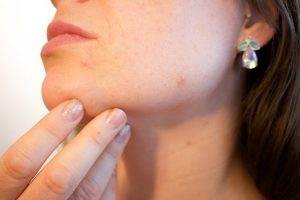Natural ways to balance your hormones
Both women and men experience hormonal imbalances. However, women tend to experience more of these problems due to developmental changes throughout the life cycle, i.e. puberty, pregnancy, menstruation, menopause. In both men and women, hormones help our bodies to function properly. Various hormones such as adrenaline, oxytocin, serotonin, and insulin, among others, play a key role in regulating our appetite, metabolism, heart rate, sleep, growth, mood, and more.
What causes hormonal imbalances?
Hormonal imbalances can occur due to different problems. Some changes occur naturally, during puberty, when female sex hormones are activated and continually contribute to the maturity of the reproductive system, fertility, and even bone growth. During menstruation, women tend to experience symptoms related to hormonal changes. Later, women experience menopause where their hormones change dramatically once again. These changes increase the rate of visceral fat storage and promote a change in insulin sensitivity and glucose metabolism, increasing women’s risk of developing cardiovascular disease and type 2 diabetes.
Many women are unaware of the implications of consuming synthetic hormones, such as hormonal birth control. This can decrease or completely stop the production of important hormones like testosterone and progesterone, making them essentially inactive in our bodies. They can also alter metabolism, deplete B vitamins, and change the gut microbiome. This can affect physical performance, mental stress, and nutritional needs.
Other causes of hormonal imbalances:
- Type 2 diabetes
- Deficiencies or inadequate intake of nutrients
- Allergic reactions or infections
- Hyper/hypothyroidism
Lifestyles and nutrition factors that can cause imbalances:
- Extreme or prolonged stress
- Poor nutrition (includes eating too much and too little)
- Not doing or exercising a little
- Anabolic steroid abuse
- Fasting for long periods of time could lead to increased cortisol levels. Certain intermittent fasting methods, such as all-day fasts, may not be ideal for balancing hormones, especially in women.
- Diet and lifestyle
Although herbal supplements and remedies have been used for years to treat hormonal imbalances, there is no supplement that has been consistently tested to treat hormonal imbalances. However, there are certain dietary and lifestyle changes that can be adapted to help prevent and even correct imbalances. Here are some of them:
Enough protein intake
Protein helps control your «hunger hormones.» Protein helps decrease ghrelin and increase hormones like GLP-1 and PYY, keeping you satiated and balanced with hormones. The amino acid leucine can play an important role in the synthesis of muscle proteins. Chicken, iberian ham, eggs, lentils, nuts, and chickpeas are all good sources and can help maintain lean muscle mass and balance hormones.
Keep active
Regular physical activity has been shown to reduce insulin levels and increase insulin sensitivity, as well as reducing the risk of chronic disease. Dopamine, a «wellness» hormone, is also produced while exercising, and it also improves mood. Exercise also helps balance levels of cortisol, a stress hormone, produced in the body.
Limit ultra-processed foods
Ultra-processed foods such as candy, sugary drinks, or refined flours and oils are linked to insulin resistance, higher levels of ghrelin (which increases hunger), and lower levels of PYY (which decrease satiety).
Stress
Prolonged stress can raise cortisol levels, which can affect metabolism, mood, and libido. Practicing yoga, meditation, or other methods of stress relief can help.
Consumption of essential fatty acids
Essential fatty acids, like omega 3s, are helpful in reducing inflammation and gastrointestinal upset. They are also great for balancing hormones and reducing stress.
Foods rich in probiotics
Probiotics and fermented foods are great for balancing hormones in the gut microbiome.
Sleep well
Poor sleep has been linked to problems with levels of cortisol, insulin, leptin, ghrelin, and growth hormone. Restful, quality sleep is very important to our health, our hormones, and our overall well-being.
Eat enough fiber
Fiber (also known as prebiotics) helps keep your hormones and intestines on track. Fiber has a binding capacity and helps your body excrete unwanted substances.
Prioritize micronutrients
You can start correcting hormonal imbalances by consuming B vitamins, magnesium, zinc, vitamin C and E. You can find many of them in whole grains, dark leafy vegetables, nuts, seeds, berries. and citrus. A supplement may be necessary if not enough is obtained through diet alone.
Conclusion
We hope that, after reading this post, you know what causes hormonal imbalances. Plus, you have several tips on natural ways to balance your hormones.








